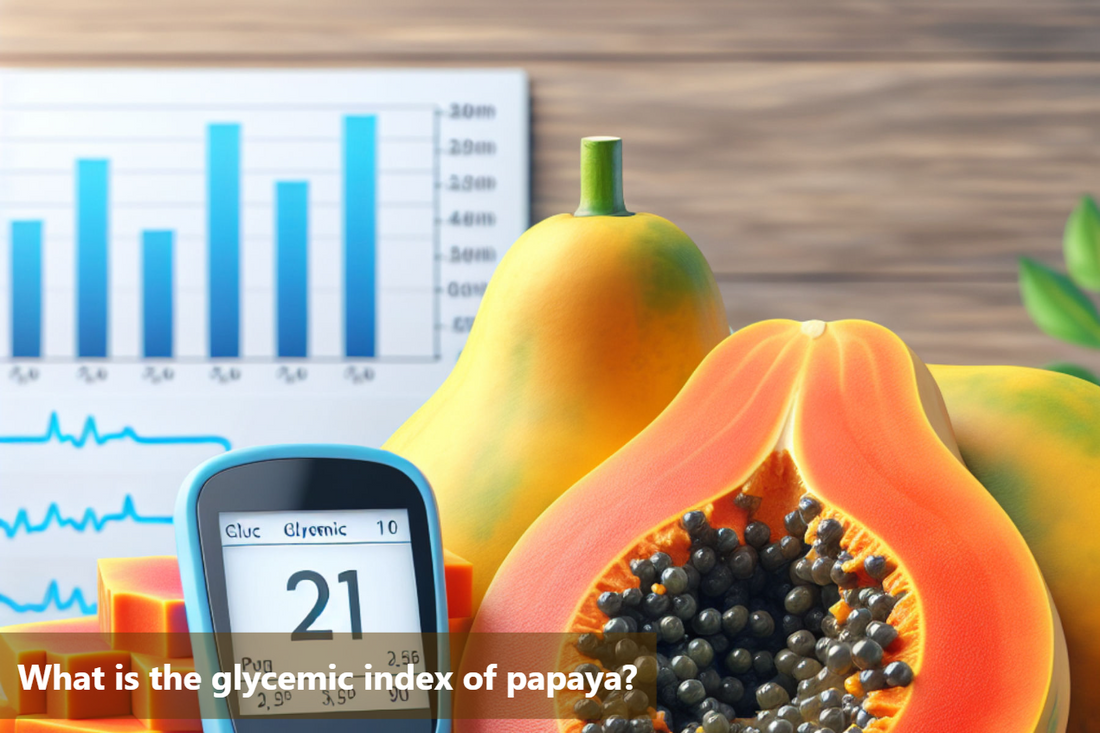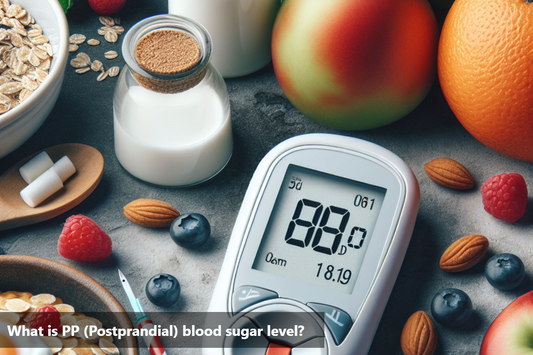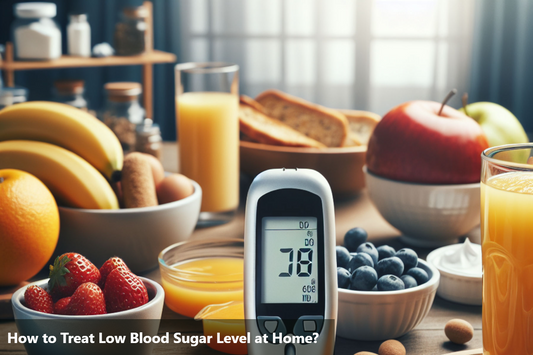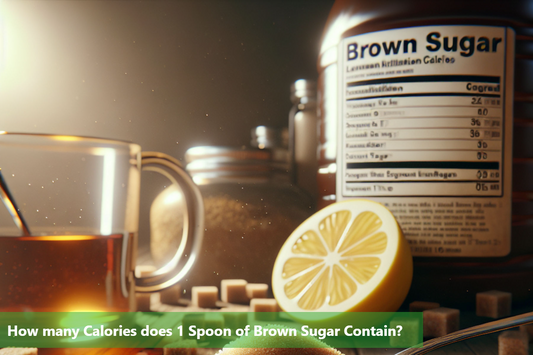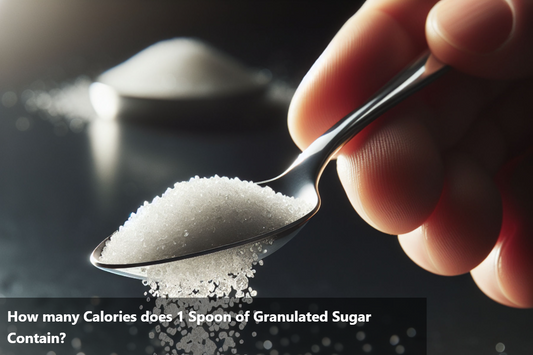The Glycemic Index (GI) and Glycemic Load are important for understanding how different foods affect our blood sugar levels. The GI shows how fast a food can raise blood sugar levels. Foods with a high GI are quickly digested, causing a fast increase in blood sugar. Foods with a low GI are digested slowly, leading to a steady rise in blood sugar.
Papaya is tasty and packed with health benefits. It has a moderate GI and a low GL. Including papaya in your diet can help keep your blood sugar levels healthy and enhance your well-being.
Understanding Papaya and its Nutritional Content
Papaya is a tropical fruit known for its vibrant orange flesh and sweet flavor. It's not only delicious but also offers various health benefits due to its rich nutritional content. Here's an overview of papaya and its nutritional content:
|
Nutrient |
Amount per 100g |
|---|---|
|
Calories |
43 kcal |
|
Protein |
0.5 g |
|
Fat |
0.3 g |
|
Carbohydrates |
11 g |
|
Fiber |
1.7 g |
|
Sugars |
7.8 g |
|
Vitamin C |
60.9 mg (101% DV) |
|
Vitamin A |
950 IU (19% DV) |
|
Folate |
37 mcg (9% DV) |
|
Potassium |
182 mg (5% DV) |
|
Magnesium |
10 mg (2% DV) |
|
Calcium |
20 mg (2% DV) |
|
Iron |
0.25 mg (1% DV) |
These values are approximate and can vary based on factors such as ripeness and variety. Papaya is a nutritious fruit rich in vitamins, minerals, fiber, and antioxidants, making it a healthy addition to a balanced diet.
Glycemic Index and Glycemic Load of Papaya
The glycemic index (GI) and glycemic load (GL) of papaya can vary depending on factors such as ripeness, variety, and portion size. Here's an overview of the GI and GL of papaya:
|
Papaya Type |
Glycemic Index (GI) |
Glycemic Load (GL) |
|---|---|---|
|
Ripe Papaya |
Low to moderate (approx. 60 or lower) |
Low |
|
Unripe Papaya |
Low to moderate (approx. 50 or lower) |
Low |
Please note that these values are approximate and can vary based on factors such as ripeness, variety, and portion size.
As a general guideline:
-
Consuming a standard serving size of papaya (e.g., 1 cup of diced papaya) typically results in a low glycemic load, indicating a minimal impact on blood sugar levels.
-
Larger portion sizes may result in a higher glycemic load, so it's essential to consider portion control when incorporating papaya into your diet, especially for individuals with diabetes or those monitoring their blood sugar levels.
Overall, papaya is a nutritious fruit with a relatively low to moderate glycemic index and glycemic load. It can be enjoyed as part of a balanced diet, providing essential vitamins, minerals, fiber, and antioxidants while contributing to overall health and well-being.
Benefits of Consuming Papaya for Blood Sugar Control
Consuming papaya can offer several benefits for blood sugar control due to its nutritional content and various bioactive compounds. Here are some ways papaya can support blood sugar management:
-
Low Glycemic Index: Papaya has a low to moderate glycemic index, meaning it doesn't cause a rapid spike in blood sugar levels after consumption. This helps maintain stable blood sugar levels and prevents sudden spikes and crashes.
-
High Fiber Content: Papaya is rich in dietary fiber, which slows down the absorption of glucose in the bloodstream. Fiber also promotes satiety, reducing hunger cravings and helping to regulate appetite and food intake.
-
Antioxidant Properties: Papaya contains antioxidants such as vitamin C, beta-carotene, and flavonoids, which help reduce oxidative stress and inflammation in the body. Chronic inflammation and oxidative stress are linked to insulin resistance and impaired blood sugar control.
-
Rich in Vitamins and Minerals: Papaya is a good source of essential vitamins and minerals, including vitamin C, vitamin A, potassium, and magnesium. These nutrients play various roles in glucose metabolism, insulin sensitivity, and overall metabolic health.
-
Contains Digestive Enzymes: Papaya contains enzymes such as papain and chymopapain, which aid in digestion and help improve gut health. A healthy digestive system can optimize nutrient absorption and support overall metabolic function.
-
Hydration: Papaya has a high water content, which helps keep you hydrated and supports kidney function. Proper hydration is essential for maintaining optimal blood sugar levels and overall health.

-
Weight Management: Incorporating papaya into a balanced diet can contribute to weight management and obesity prevention. Maintaining a healthy weight is crucial for improving insulin sensitivity and blood sugar control.
Bottom Line
Papaya is a tropical fruit that can help keep your blood sugar stable as part of a healthy diet. When you eat foods with a high sugar level, your blood sugar can go up quickly, affecting your overall health. Papaya has a lower sugar level, making it a good choice for managing blood sugar. It’s also packed with important nutrients like vitamins, minerals, and fiber. You can enjoy papaya’s natural sweetness without worrying about a sudden spike in your blood sugar levels.
Adding papaya to your diet can help you control your blood sugar, deal with insulin problems, and keep your sugar levels in check. Make sure to eat ripe papaya and try different ways to prepare it to get the most benefits. Let papaya be a delicious and healthy part of your journey to better health and well-being.
Confused with terminologies like Low GI etc? DiabeSmart Food Products are crafted for Diabetics. They are clinically tested and have a great taste; so your food habits don't change.
This Blog post is an initiative by DiabeSmart, to provide accurate and Nutritionist / Doctor approved information related to Diabetes. DiabeSmart is India's first Food brand designed specifically for Diabetics, that has been clinically tested on Diabetics and Pre-Diabetics to deliver 55% - 70% lower Sugar spikes. DiabeSmart is part of Lo! Foods - India's leading brand for Everyday Functional Health foods.

